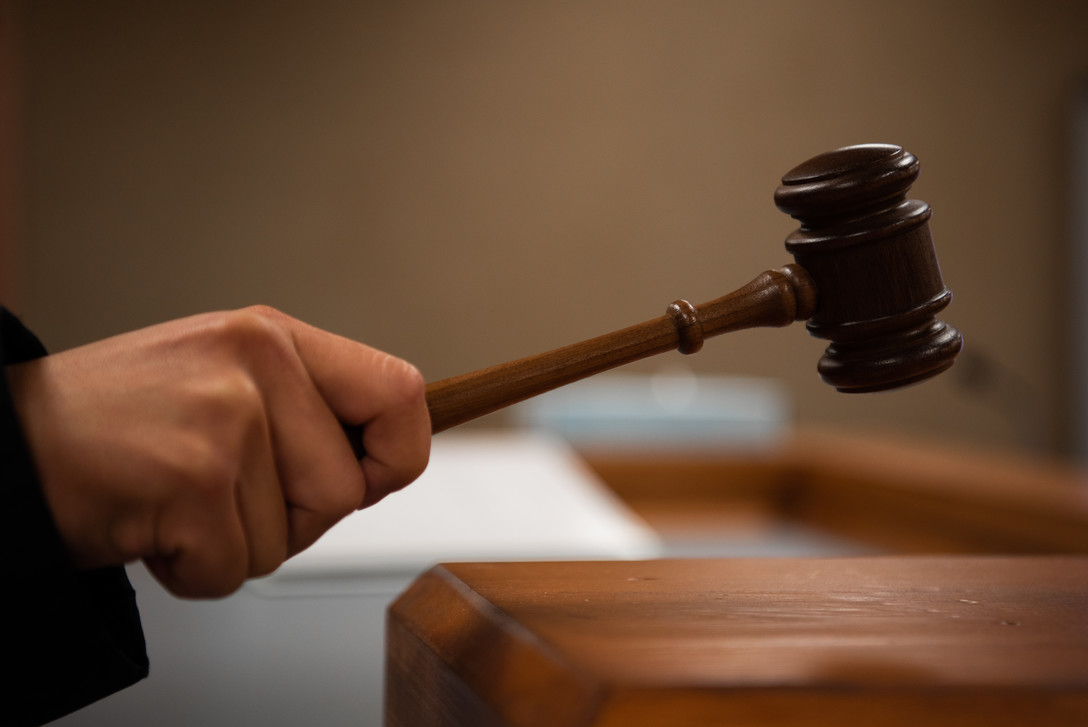
Four men implicated in a scheme to sell tear gas from a South Florida supplier to the Bolivian government were sentenced to prison terms of roughly two to three years in Miami federal court on Thursday.
Bolivian police used the tear gas — sold at inflated prices along with kickbacks to government officials — to quell supporters of socialist leader Evo Morales during street protests after he resigned as president following a disputed election in 2019.
At the center of the alleged foreign corruption scheme was Arturo Carlos Murillo Prijic, the former Bolivian minister of the conservative government that briefly replaced Morales’ administration. He was arrested in 2021 at a home in Doral on conspiracy and money-laundering charges accusing him of accepting more than $500,000 in kickbacks from the South Florida tear-gas supplier, Bravo Tactical Solutions, between November 2019 and April 2020.
Murillo, who has been held at a federal lock-up since his arrest, is the only one of five defendants charged in the foreign corruption and money laundering case who has chosen to face a jury trial later this year.
The other four defendants named as co-conspirators pleaded guilty last year and were sentenced on Thursday. They are cooperating with federal prosecutors in the case against Murillo.
They are: Sergio Rodrigo Mendez Mendizabal, the minister’s former chief of staff, convicted of money laundering and sentenced to 42 months; Bryan Berkman, CEO of Bravo Tactical Solutions in Tamarac, convicted of foreign corruption and sentenced to 28 months in prison and 36 months of home confinement; his father, Luis Berkman, of Georgia, convicted of money laundering and sentenced to 38 months in prison and 16 months of home confinement; and Philip Lichtenfeld, a U.S. citizen, who was convicted of foreign corruption and sentenced to 26 months of prison and ordered to pay a $75,000 fine.
Bryan Berkman, Luis Berkman, and Litchtenfeld were accused of paying more than $1 million in kickbacks to Murillo, Mendez and two other Bolivian officials to obtain a $5.6 million tear-gas defense contract with the conservative government of former interim Bolivian President Jeanine Áñez.
“They laundered the bribe proceeds and illicit gains through bank accounts in the United States, Bolivia, and Singapore, and arranged the delivery of cash bribes in Miami, Florida, and Cochabamba, Bolivia, ” federal prosecutor Eli Rubin wrote in a sentencing memo. “And in the process, they enriched themselves handsomely by committing serious, calculated crimes.”
Rubin sought the maximum prison sentences for each of the four defendants — 10 years for Luis Berkman and Mendez, and five years for Bryan Berkman and Lichtenfeld — but U.S. District Judge Paul Huck was not persuaded.
Luis Berkman’s defense attorney, Joseph DeMaria, argued that while the judge saw the kickback scheme as a “serious crime,” he did not have to “sacrifice” the defendants with maximum terms to send a message of deterrence.
“I thought the judge was very careful and very fair,” DeMaria said after the sentencing. The other three defense lawyers in the case are Michael Nadler, Frank Schwartz and David Magilligan.
In Miami federal court, the four defendants signed factual statements as part of their plea agreements, admitting to the following scheme:
Between March and April of last year, Bryan Berkman, Luis Berkman, Lichtenfeld, Murillo and Mendez arranged for the Central Bank of Bolivia to transfer about $5.6 million to Bravo Tactical Solutions. In turn, the South Florida company wired about $3.3 million of those proceeds to a bank account in Brazil to pay the actual manufacturer of the tear gas under Bravo’s defense contract with the Bolivian government.
The huge difference — about $2.4 million — accounted for Bravo’s inflated defense contract covering a split of both profits and bribes, according to Homeland Security Investigations and the U.S. Attorney’s Office.
Prosecutors say both Berkmans then arranged for $700,000 to be transferred through a Miami bank account as kickbacks to Murillo and Mendez, and an additional $500,000 as fees to Lichtenfeld for helping obtain Bravo’s tear-gas contract with the Bolivian government. Lichtenfeld was a longtime friend of Mendez, the minister’s former chief of staff.
Murillo’s defense attorney, Ana Davide, said the federal prosecution of her client is the result of a political power play in Bolivia by the new socialist government that succeeded the conservative administration, which lasted only one year after Morales had stepped down in 2019.
___
© 2022 Miami Herald
Distributed by Tribune Content Agency, LLC.